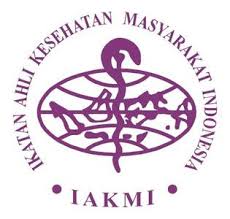Determinan Gula Darah Tidak Terkontrol Di Wilayah Kerja Puskesmas Cilimus Kabupaten Kuningan
Abstract
Abstrak
Kadar gula darah tidak terkontrol memiliki berkaitan erat penyakit diabetes melitus yang dapat menyebabkan komplikasi kronis makroangiopati dan mikroangipati. Diabetes melitus hingga saat ini masih menjadi penyakit kronis yang kompleks dengan kasus yang terus mengalami peningkatan. Indonesia merupakan negara urutan kelima pengidap diabetes terbanyak yakni 19,47 juta kasus dengan prevalensi 10,89%. Prevalensi DM berdasarkan riskesdas tahun 2018 di Provinsi Jawa Barat mengalami peningkatan dari riskesdas tahun 2013 yakni dari 1,3 % menjadi 1,7 %. Pada tahun 2021 di Puskesmas Cilimus terdapat 501 kejadian diabetes melitus dengan prevalensi yang mengalami peningkatan 9,8% dari tahun sebelumnya. Tujuan penelitian ini untuk mengetahui determinan yang menyebabkan tidak terkontrolnya kadar gula darah yang terjadi di wilayah Kerja Puskesmas Cilimus, Kabupaten Kuningan. Jenis penelitian ini adalah observasional analitik dengan rancangan studi kohort retrospektif. Penelitian ini menggunakan data sekunder posbindu PTM tahun 2021. Berdasarkan kriteria inklusi dan eksklusi diperoleh 226 sampel yang memenuhi kriteria dari seluruh populasi. Analisis data dilakukan dengan uji chi square dan regresi logistik. Hasil penelitian ini yaitu menunjukkan terdapat hubungan yang signifikan antara usia (p<0,001), status obesitas (p=0,011), riwayat keluarga (p<0,001), aktivitas fisik (p< 0,001), dan konsumsi gula berlebih (p=0,03) terhadap kejadian diabetes melitus di wilayah Kerja Puskesmas Cilimus. Kesimpulan penelitian ini yakni faktor risiko yang menjadi penyebab tidak terkontrolnya kadar gula darah di wilayah Kerja Puskesmas Cilimus tahun 2021 yakni usia,status obesitas, riwayat dm keluarga, aktivitas fisik dan konsumsi gula berlebih.
Abstract
Uncontrolled blood sugar levels are closely related to diabetes mellitus which can cause chronic complications in the form of macroangiopathy and microangiopathy. Diabetes mellitus is still a complex chronic disease with cases that continue to increas. Indonesia is the fifth most common country with diabetes with 19.47 million cases with a prevalence of 10.89%. The prevalence of DM based on the 2018 Riskesdas in West Java Province has increased from the 2013 Riskesdas, namely from 1.3% to 1.7%. At the Cilimus Health Center in 2021 there were 501 incidents of diabetes mellitus with a prevalence that had increased by 9.8% from the previous year. The purpose of this study was to determine the risk factors that affect uncontrolled blood glucose levels that occur in the working area of the Cilimus Health Center, Kuningan Regency. This type of research is analytic observational with a retrospective cohort study design. This study used secondary data from posbindu PTM in 2021. Based on the inclusion and exclusion criteria, 226 samples were obtained that met the criteria from the entire population. Data analysis was performed by chi square test and logistic regression. The results of this study showed that there was a significant relationship between age (p<0.001), obesity status (p=0.011), family history (p<0.001), physical activity (p<0.001), and excess sugar consumption (p=0.001). 03) on the incidence of diabetes mellitus in the working area of the Cilimus Health Center. The conclusion of this study is that the risk factors that cause uncontrolled blood sugar levels in the Cilimus Health Center work area in 2021 are age, obesity status, family history of diabetes mellitus, physical activity and excess sugar consumption.




